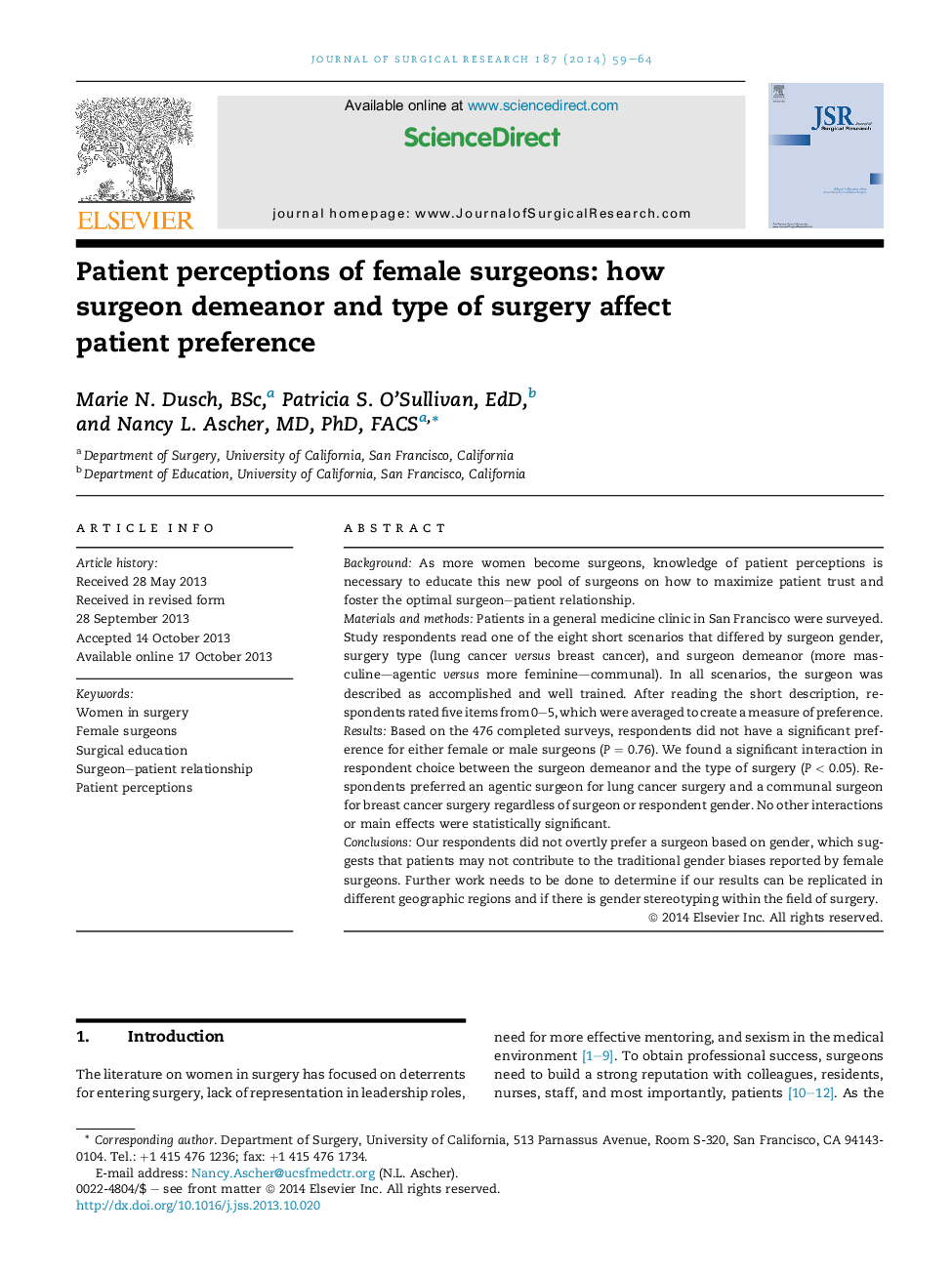| Article ID | Journal | Published Year | Pages | File Type |
|---|---|---|---|---|
| 4300271 | Journal of Surgical Research | 2014 | 6 Pages |
BackgroundAs more women become surgeons, knowledge of patient perceptions is necessary to educate this new pool of surgeons on how to maximize patient trust and foster the optimal surgeon–patient relationship.Materials and methodsPatients in a general medicine clinic in San Francisco were surveyed. Study respondents read one of the eight short scenarios that differed by surgeon gender, surgery type (lung cancer versus breast cancer), and surgeon demeanor (more masculine—agentic versus more feminine—communal). In all scenarios, the surgeon was described as accomplished and well trained. After reading the short description, respondents rated five items from 0–5, which were averaged to create a measure of preference.ResultsBased on the 476 completed surveys, respondents did not have a significant preference for either female or male surgeons (P = 0.76). We found a significant interaction in respondent choice between the surgeon demeanor and the type of surgery (P < 0.05). Respondents preferred an agentic surgeon for lung cancer surgery and a communal surgeon for breast cancer surgery regardless of surgeon or respondent gender. No other interactions or main effects were statistically significant.ConclusionsOur respondents did not overtly prefer a surgeon based on gender, which suggests that patients may not contribute to the traditional gender biases reported by female surgeons. Further work needs to be done to determine if our results can be replicated in different geographic regions and if there is gender stereotyping within the field of surgery.
